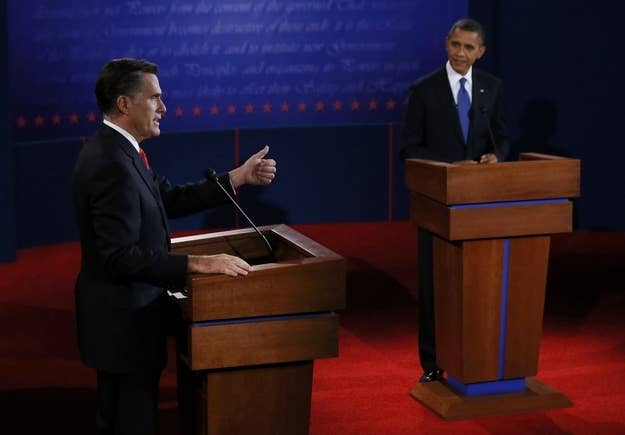
Washington, D.C. — Both candidates for president offered warm words Thursday night about the Simpson-Bowles plan to close the federal deficit, which would have cut the deficit by $6.3 trillion over ten years with a blend of spending cuts and revenue.
Both candidates have presented their own deficit-reduction plans, but Romney's heavily favors putting nearly all weight on spending cuts. On Wednesday night, however, he appeared to move slightly closer to Simpson-Bowles, saying "the president should have grabbed it."
"If you wanted to make some adjustments to it, take it, go to Congress, fight for it," Romney said.
Romney was careful not to actually commit to that, or any, precise plan, and a top economic adviser, Glenn Hubbard, said his position had not in fact shifted.
Hubbard, the dean of the Columbia University graduate school of business, said Romney shares with the Simpson-Bowles plan support for broadening the tax base, and said the new taxes in the panel's plan can be done away with relative ease. The new taxes, he said, are an "order of magnitude" smaller than the large sums in play in any plan to close the deficit.
During the debate, Obama took issue with Romney's claim that he would not cut taxes for the wealthiest Americans under his plan.
"For 18 months he's been running on this tax plan," Obama said. "And now, five weeks before the election, he's saying that his big, bold idea is, 'Never mind.'"
And Obama's failure to get clear traction on Romney's fiscal views was, the president's allies said, the product of Romney's own vagueness.
"The problem for the president is that Romney kept describing a plan that has never been articulated," Justin Wolfers, an associate professor at the University of Pennsylvania's Wharton School, told BuzzFeed.
If Simpson-Bowles — which neither candidate in fact supports in full, and which Romney accused Obama of letting languish — was the unexpected star of the debate, the largest dog that didn't bark in Wednesday's debate was the so-called "fiscal cliff," the mix of tax hikes and spending cuts that, if allowed to take effect at year's end, could steer the economy back into a recession.
The pressure on Congress to reach agreement on the big issues of taxing and spending has added a level of urgency to the campaign's fiscal debates, and observers on both sides were surprised not to hear it addressed explicitly in the Wednesday debate. On Capitol Hill, Republicans have tried to blame Obama directly for the spending cuts, which were triggered when a bipartisan super committee failed to reach a deficit-reduction agreement.
After the debate, Grover Norquist, the president of the anti-spending Americans for Tax Reform, told BuzzFeed he thought it was a "mistake" that Romney failed to mention the issue, but added, "I think they both have talked about this stuff so much that they take it for granted that everybody already knows about it."
